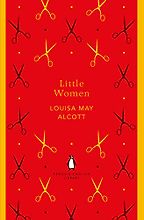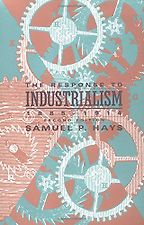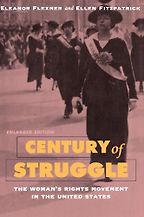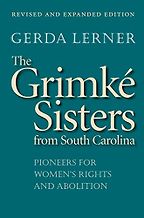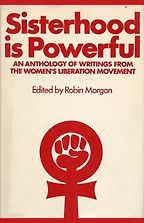Your first book is Little Women by Louisa May Alcott.
This is an iconic American text. It was written in the years immediately following the American Civil War. Alcott presents a portrait of a northern family of women managing on their own while their husband/father is serving as an army chaplain. This classic work contains a powerful message to young women, namely that they do not have to marry in order to achieve success. Jo is one of the first in a long line of what might be described as ‘plucky’ heroines who follow their own destiny. She doesn’t end up marrying her leading man in this book although she finally does in a later volume.
Nancy Drew is another series which follows in those footsteps. The book is all led by her. I think if one looks in the magazine literature it would be hard to find a similar character at that time. These were stories initially published in a magazine and then bound together as a book.
Alcott was one of the first professional women authors and she had a very interesting life herself having served as a nurse in an army hospital during the Civil War. Her father was a leading social innovator who joined one of the first social communities which didn’t last very long because, while the men were off thinking their thoughts and communing with nature, the women’s lives didn’t change at all!
How did you feel when you read this book?
What it meant to me is something I wasn’t aware of at the time, but later I came to recognise this ‘can do’ spirit which is terrifically American. As a girl growing up in New York in the 50s and 60s I absorbed this notion of enterprising activism, of being the leader rather than a follower. And I think that is what this whole genre of girls’ stories is all about: women and girls taking charge of their own lives.
Your second choice, The Response to Industrialism, was written by your mentor Samuel P Hays.
Yes, he was my mentor at the University of Pittsburgh, where I took my undergraduate and postgraduate degrees. He and my other mentor, David Montgomery, supervised my PhD.
This brief book examined the changing economic structure of the United States between the years 1885 to 1914. The importance of this book, which has become a historical classic, is that it looked at a broad variety of responses to economic change during the American Gilded Age and Progressive Era.
The most powerful aspect of the book for me was that it regarded the women as a historical subject. It’s also a beautifully written book which I still refer my students to for knowledge and the clarity of its prose.
Studying Sam’s book, as well as talking to my two mentors, enabled me to formulate a research project that focused and still focuses upon the relationship between economic, demographic and political forces. Both Hays and Montgomery looked behind the labels to determine the origins of public protest and policy.
Pittsburgh when I started my PhD in 1968 was very much a steel industry town. What interested me was the lives of the women who lived in the shadow of the steel mills and how all the work they did at home enabled their husbands, sons and lodgers to work the way they did in the mills. Apart from Margaret Byington, there had never been a study of these women. What I wanted to do was to look at the ordinary women’s lives who were not working in the mills and see the impact they had on the men around them. And my mentors encouraged me to do that.
Maybe it was because Sam was a Quaker, I don’t know, but what I liked about him was he took what I was interested in seriously and agreed that I could teach a course entitled The History and Social Role of Women in 1969/1970. This was one of the first courses in the United States on the history of women and I was a postgrad at the time.
Tell me about Eleanor Flexner’s Century of Struggle: The Woman’s Rights Movement in the United States.
This was first published in 1959 and was one of the first books I read on the history of women. Her approach went far beyond a narrow consideration of how women got the vote at local or federal level. Instead she looked at all varieties of women’s activism including trade unionism, African-American women’s struggle, the middle-class club woman movement, and so on. In so doing she showed how to connect the economic, social, political and cultural dynamics that finally resulted in women obtaining Federal suffrage.
This book was critical because she opened up all these topics and it took about ten years before women began really researching some of the topics that she covered in general, but it was a real eye-opener of a book. She was very much one of the forerunners in that field.
Your next author, Gerda Lerner, is an Austrian Jew who came to the United States as a refugee and ended up writing about women in South Carolina with her book The Grimké Sisters from South Carolina.
Yes, Gerda really is one of the most fascinating women historians and this is one of the first scholarly works that focused on women’s resistance to oppression. The Grimké sisters were two women brought up on a plantation who rejected the idea that there should be slavery and they couldn’t express these views in the south, so they left and went north. They became the first women to really speak out in public against the slave system and that sparked controversy about whether or not women should speak in public at mixed gatherings.
I think the book really demonstrated how important women’s protest activities were to political activism and the historical record. Lerner’s subsequent books on the history of women in the United States, African-American women’s writing and her magisterial The Creation of Patriarchy all explained the role of women in history and helped give women back their voice. All her books helped the majority to find its past.
Get the weekly Five Books newsletter
And I think Lerner really is a fascinating woman. She was always very aware of oppression, having escaped the Nazis in Vienna. So I think her life served as a powerful model of activism and scholarship. Once she was in the United States she married and had a conventional life as wife and mother and then did her own education, was a mature student and really was one of the founders of the study of the history of women.
Your final book is Sisterhood Is Powerful: An Anthology of Writings from the Women’s Liberation Movement, edited by Robin Morgan.
This was published in 1970 at the beginning of the Women’s Liberation Movement. It contained a variety of writing by key theoreticians and activists. Along with The Female Eunuch by Germaine Greer and Kate Millett’s Sexual Politics which also appeared in 1970, these books were the rallying cry of the Women’s Liberation Movement and a call to activism in one’s personal and public life. It let us see that we weren’t alone.
At the time we were speaking out from a slightly left-of-centre view. We were engaged in a variety of what now seems to be political work. For example, I worked at a free clinic giving pregnancy and birth control counselling. The Women’s Liberation Movement was very much involved around the issue of abortion. And I think that is partially a result of our own age group at the time and the Summer of Love.
Five Books aims to keep its book recommendations and interviews up to date. If you are the interviewee and would like to update your choice of books (or even just what you say about them) please email us at [email protected]
Five Books interviews are expensive to produce. If you've enjoyed this interview, please support us by donating a small amount.
